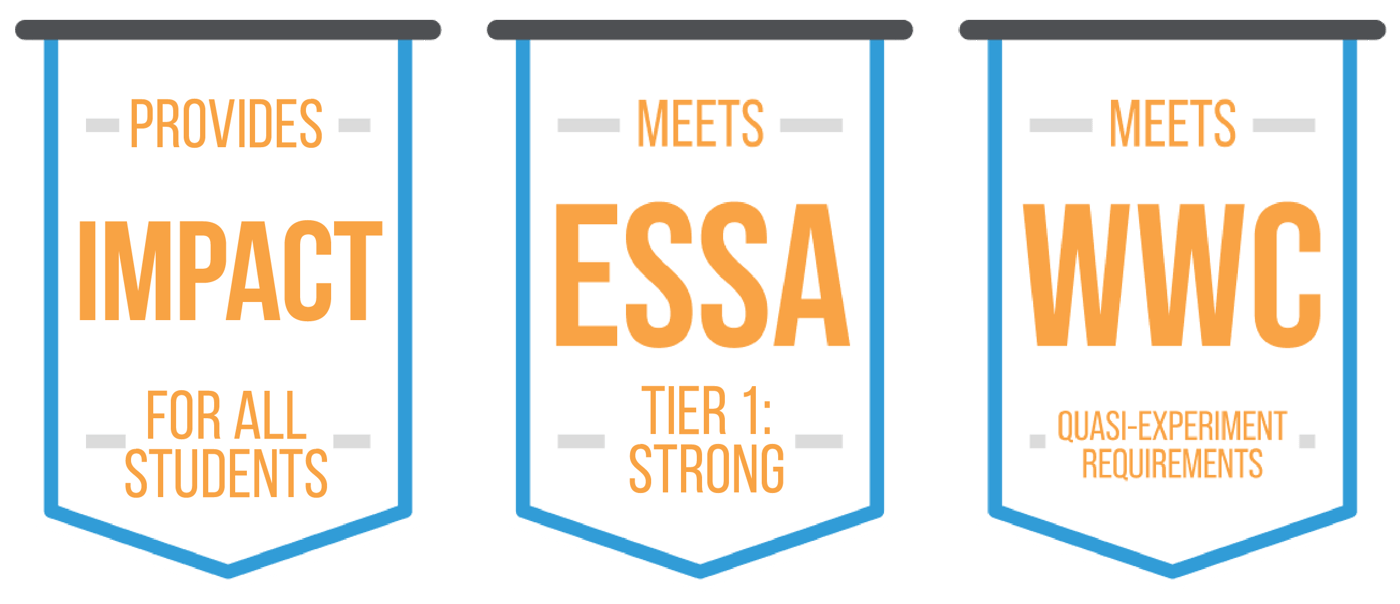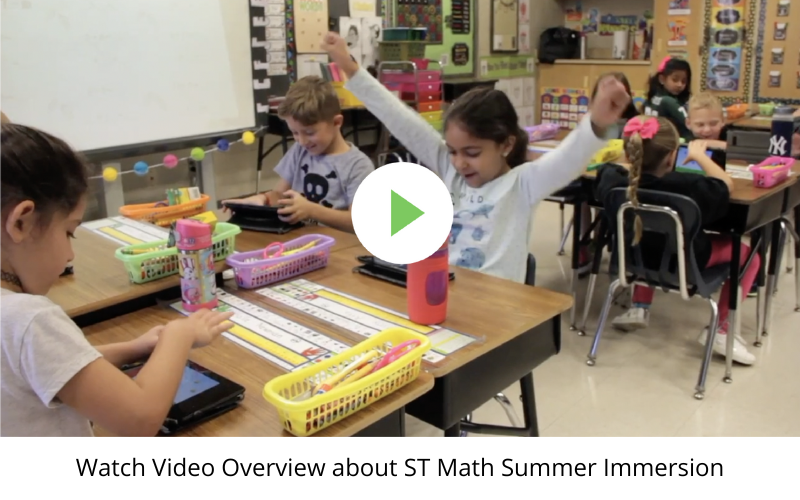Programs
Experience
Services
Educator Topics
Gain Ground During Summer
A study by the American Educational Research Journal found that the average student lost 17-34% of the prior year's learning gains during summer break. It was also noted that students who lose ground in one summer are more likely to also lose ground in subsequent summers.
As this summer approaches, don’t lose the great progress that’s been made!
Accelerate Learning with ST Math Summer Immersion
ST Math Summer Immersion provides students in grades K-5 with an opportunity to accelerate math learning during the summer months. Students experience engaging and fun puzzles, lessons, and projects that focus on grade-level development of content knowledge, reasoning skills, and growth mindset.
Program Features:
![]() Pre- and post-assessments
Pre- and post-assessments
![]() Rotation stations through ST Math's visual models and manipulatives
Rotation stations through ST Math's visual models and manipulatives
Table games![]()
![]() Small group instruction
Small group instruction
![]() A project using engineering design principle
A project using engineering design principle
![]() Whole-group lessons
Whole-group lessons
![]() Access to our online professional learning resources and email and phone technical support
Access to our online professional learning resources and email and phone technical support
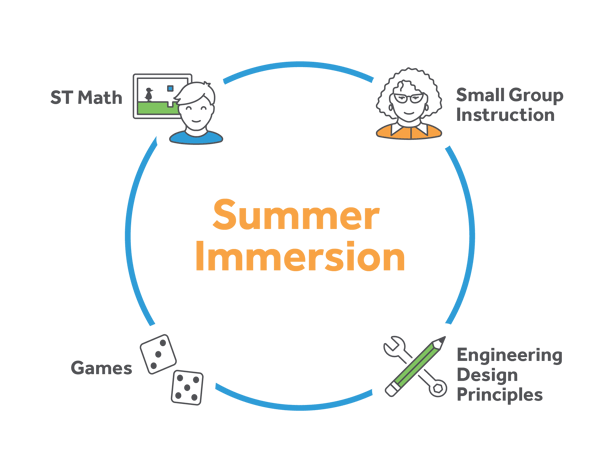
Give Everyone the Support They Need in Math
Build Confidence and Conceptual Understanding
Students attending summer school typically need additional support in key areas. Content in grades K-2 is focused on operations and algebraic thinking. Content in grades 3-5 is focused on fractions.
Teachers are provided with resources, lesson plans, and an instructional framework to accommodate a 4 day or a 5 day summer schedule. Slide decks support teachers in facilitating problem solving discussions to reduce printing needs.
Our blended learning program facilitates a rich mathematical environment in which students build confidence as they learn concepts visually, and apply them to challenging problems. Developing confidence and problem solving skills ensures that each student is just as prepared for any new material in the coming fall as their peers.
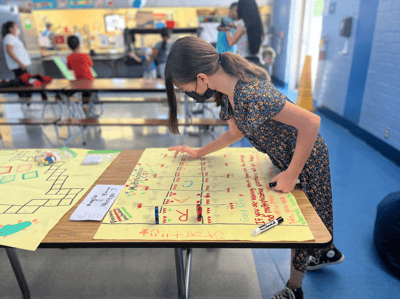
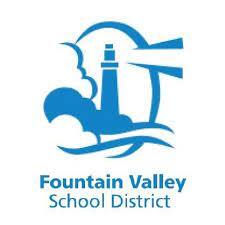

Teacher Testimonials

- @MrsGteach5th, 5th Grade Teacher

